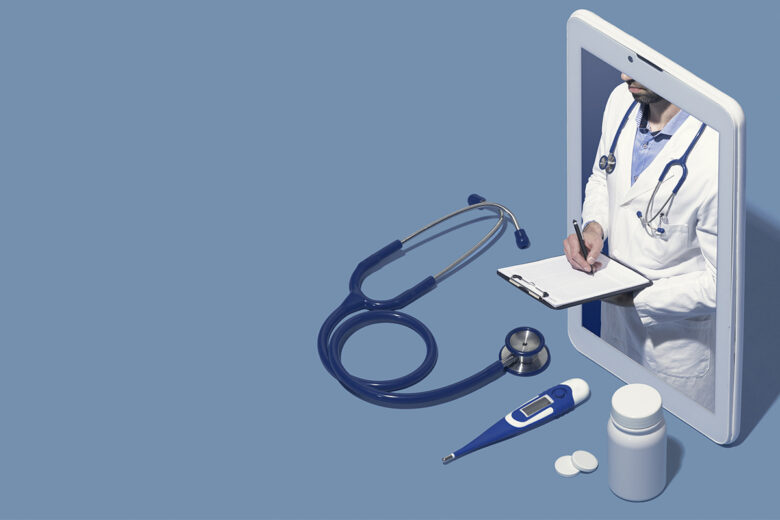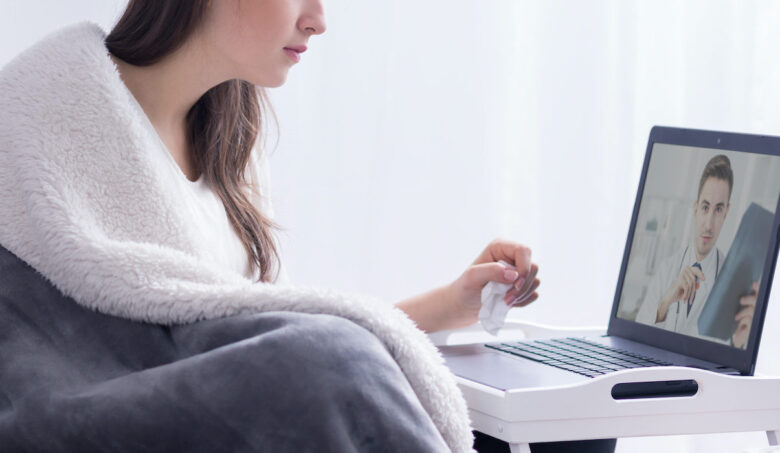With the United States starting to open back up, many of us are now having to face the habits we formed this past year.
Maybe you gained some weight and stopped working out. Now, you may decide you want to start going back to your yoga studio.
Or perhaps you got into the rut of watching hours of TV every night. Now, with the chance to see friends and go to events, you may want to alter your schedule.
While these are relatively harmless habits that were picked up throughout the pandemic, some people are dealing with more dangerous behavioral patterns.
Some may have turned to alcohol to ease their anxiety about the pandemic, and have found themselves starting to experience withdrawal symptoms if they try to go without having a drink for a day.
Others may have stockpiled prescriptions medications, popping more and more to try to escape the deep void of depression they were experiencing.
Others still may have had their eating disorders go into hyperdrive. For those struggling with binge eating disorders, if they started working from home, they were now constantly available to all the food in their kitchen.
Addictions thrived in the pandemic, feeding of the fear, anxiety, and isolation that it caused. With the end hopefully in sight, people are facing a difficult choice in their treatment route: should I go in person or try tele-health?
What is tele-health?

Tele-health has been gaining popularity over the past few years, but the pandemic catapulted it into the mainstream. For someone who chooses tele-health treatment options, instead of going to the doctor’s office, they simply video call the doctor and explain their issue.
For some treatment, this works great. If the doctor can see that the patient has a rash on their arm, for example, they can fairly easily prescribe the proper medication to treat it.
However, there are limits to tele-health. If you’re experiencing pain in your chest or difficulty breathing, it’s going to be difficult for the doctor to diagnose the problem, and they may ask that you come into the office so they can physically assess you.
Tele-health for mental health
Perhaps the area with the greatest growth in tele-health this past year has been in the mental health treatment world.
Now, the majority of therapists will offer remote sessions for their clients. For anyone still anxious about being around people, this has been a wonderful option. This also works well if you’ve already been seeing your therapist for a while.
However, for someone seeing a new therapist, it may be hard to connect with them over a screen, and even more difficult to open up about some of your deepest and most personal insecurities.
Tele-health for addiction treatment

For addiction treatment specifically, some organizations and programs have moved to offering online support, as many in-person support services were unavailable.
While this can be a good option for supporting those who are already sober, those who are currently battling an addiction likely need more intensive, hands-on support.
This is especially true if they need to detox. Detoxing on your own, or “quitting cold turkey,” can be incredibly dangerous, and should not be attempted. Detoxing should always be carried out under the guidance of a medical doctor.
How to find the right treatment program for you
Many people choose to travel for addiction treatment because it sends a message to the body when you get out of your normal surroundings. When you’re on the plane or in the car, you’re telling yourself that you’re putting a lot of effort into your treatment, and you aren’t going to squander this opportunity.
When researching different program options, think about what most connects with you.
Have you been to a treatment program before? What modality did they use (12 Step or non 12 Step)? What was your experience like?
If you had a negative experience or want to try something that could create a strong long-term change, consider checking out a non 12 step, private treatment program, like The Exclusive Hawaii.
Also think about what you want to spend your time doing. Some programs offer alternative therapies, in addition to traditional individual and group therapy. Would you enjoy art or music therapy? What about adventure or outdoor therapy?
Some rehabs also offer various holistic or movement classes that are integrated into your program. These activities can include yoga, acupuncture, private trainer sessions, and more.

Also keep in mind the environment you want to be in. Does a sunny tropical climate sound nurturing to you? Or maybe you loathe the heat, and you’d rather head to a mountain escape in the Rockies. You’ll likely be at this program for a minimum of 30 days, so make sure you think about all the factors that can affect your stay.
Going off of that, another thing to consider is the length of the program. The average length of stay in a rehab is 30 days, but there are programs that offer other lengths. For some, they require a serious commitment to the program, and only accept clients who are willing to stay for 90 days. Other programs offer multiple lengths of stay from 30 to 60 to 90 days. You may be able to find some that have only three week programs.
What’s your opinion on wanting to stay in touch with loved ones? Or do you want to continue to do some work while you’re in treatment? (Even if that means checking emails and attending a few important Zoom meetings.) In this case, you’ll want to ask the intake specialist if they allow you to use your cell phone and laptop. Some rehabs are more restrictive in what they allow, and they often take away your electronics at the beginning of your treatment. Make sure to ask ahead of time so you aren’t met with an unfortunate surprise.
Try not to put too much pressure on yourself
It’s been a hard year. And the important thing is that you’re looking for help. Many people bury themselves away from their addictions, but you’re trying to do something about it. Even if you can’t find a program that checks off every single one of your boxes, just start calling up a few. You may be surprised to see how much your gut leads you in the right direction.

